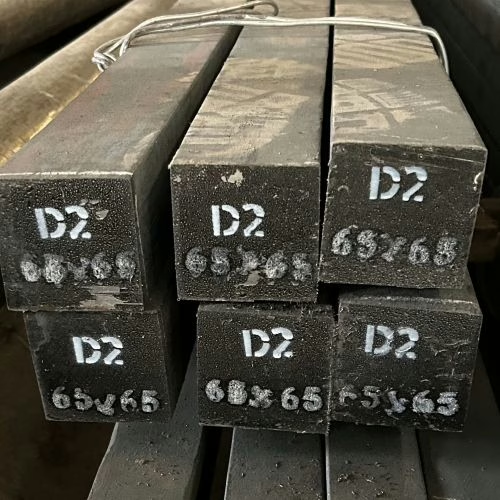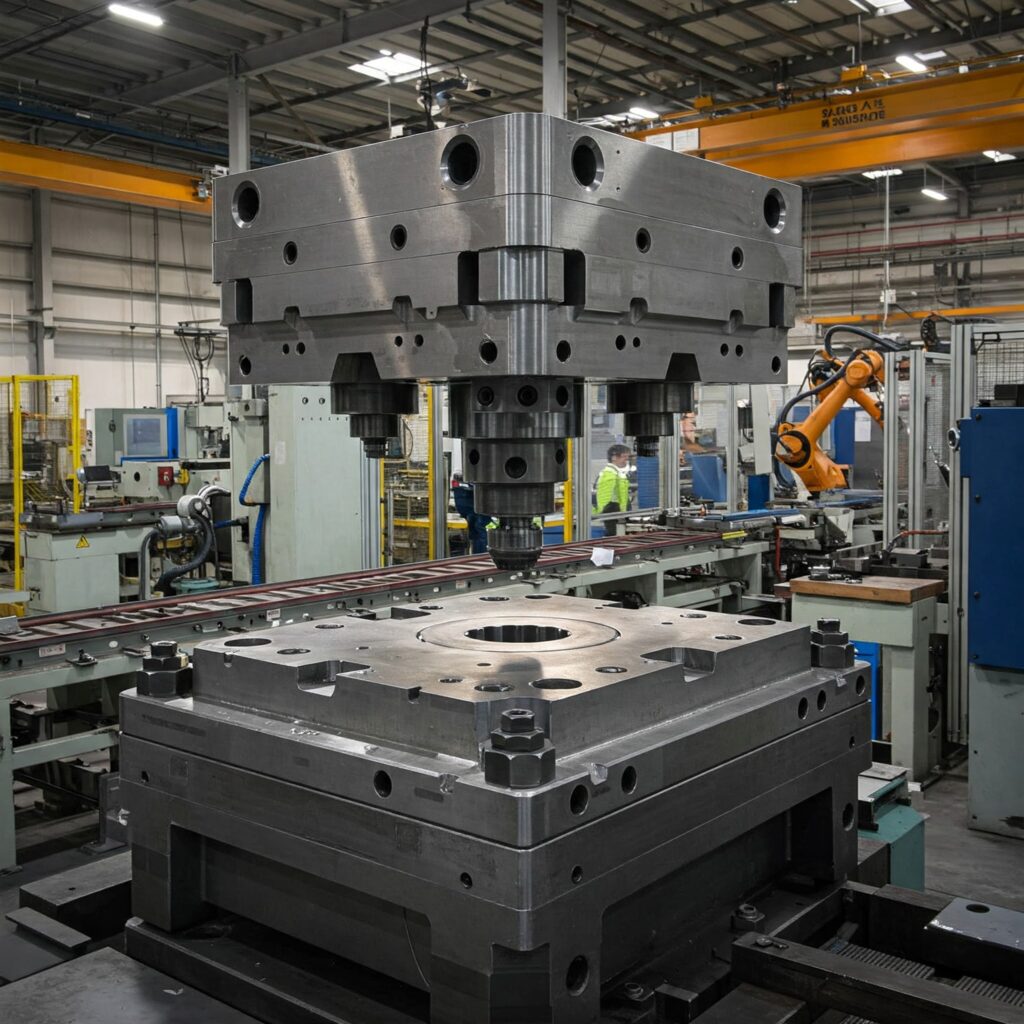D2 tool steel is an important member of the high-carbon, high-chromium cold-worked tool steel family, offering outstanding wear resistance and dimensional stability. It is often used as a benchmark for measuring the performance of other tool steels in these characteristics. D2 steel, along with other D-type steels, belongs to the category of cold-worked steels and is typically used in temperature conditions below 200 °C (usually at room temperature). After thoroughly introducing the properties of D2 steel, this article will analyze the applications of D2 tool steel.

D2 Steel Composition
AISI D2 tool steel is a complex iron-based alloy. Its composition includes a high carbon content, along with significant amounts of chromium, molybdenum, and vanadium. The nominal composition of D2 tool steel typically includes:
- Carbon (C): around 1.52%, with ranges from 1.00% to 1.60%, or even up to 2.1% (for powder metallurgy steels).
- Chromium (Cr): approximately 12.05%, with ranges from 5.00% to 12.00%.
- Molybdenum (Mo): around 0.76%, with ranges up to 1.00%.
- Vanadium (V): about 0.92%, with ranges up to 0.20%.
- Manganese (Mn): around 0.34%, with ranges from 0.15% to 0.40%.
- Silicon (Si): approximately 0.31%, with ranges from 0.20% to 0.50%.
D2 Steel Properties
D2 tool steel possesses a combination of properties that make it highly suitable for demanding cold-work applications:
- Wear Resistance: D2 offers excellent wear resistance due to its high carbon and chromium content, which leads to the formation of hard carbides. Compared to A2 tool steel, D2 shows a 30 to 40% improvement in wear resistance.
- Dimensional Stability: It exhibits exceptional non-deforming properties and minimal microstructure distortion, making it resistant to cracking during metal formation and fabrication. When air quenched from the proper hardening temperature, D2 is expected to expand or contract approximately 0.0005 in./in. (0.0005 mm/mm), representing minimum distortion among tool steels.
- Toughness: D2 steel has moderate toughness, which is lower than that of O1 tool steel or S series steel.
- Hardenability: D2 is a deep-hardening tool steel with extremely low deformation and cracking tendencies during the quenching process.
- Machinability: D2 is very difficult to machine. When properly annealed, its machinability rating is 45 compared to a 1% carbon tool steel rated at 100.
- Resistance to Softening: D2 exhibits high resistance to softening.
- Weldability: D2 tool steel has a high carbon content and contains a large amount of carbides, making it very difficult to weld.
D2 Tool Steel Hardness
The tempered hardness range for D2 is typically 60–62 HRC, and can be as high as 58-64 HRC for blanking and bending dies. For certain applications, such as long-run stamping, it may be used at 58-60 HRC. To facilitate processing, D2 steel undergoes annealing treatment, resulting in a hardness of 241 to 269 BHN after annealing.
D2 Tool Steel Applications
After learning about some of the characteristics of D2, let’s return to the main topic and discuss the applications of D2 steel. D2 tool steel is the most important and widely used material among cold-worked tool steels. These fields require D2 steel to have high wear resistance, dimensional stability, and hardness for cold working. Key applications include:
- Blanking and Stamping Dies: D2 is an excellent choice for long-run stamping applications, particularly for steel and other metals. It is widely used for blanking and piercing dies.
- Forming and Drawing Dies: It is extensively used for forming, blanking, and drawing dies. Applications include deep drawing dies, cold-forming tools, and forming rolls.
- Cutting Tools: D2 is utilized in various cutting operations such as shear and slitter knives, and piercing punches and dies.
- Thread Rolling Dies: Its excellent wear resistance makes it suitable for thread-rolling dies.
- Other Tools: D2 finds use in applications like brick molds, gages, burnishing tools, and rolls. It can also be used in hot forging operations for certain parts like tooling, where it is generally preferred for manufacturers due to its high resistance to softening and wearing, with minimal microstructure distortion and high resistance to cracking during metal forming and fabrication.
In summary, D2 is the most relevant and often-referenced grade among high-carbon, high-chromium cold-work tool steels, offering a good balance of properties like wear resistance and toughness, along with cost-effectiveness. Its widespread use underscores its significant role in the metal forming and machining industries.
Get Your D2 Tool Steel Quote from the Experts
With over 20 years of forging expertise and a network of 40+ trusted suppliers, we don’t just sell D2 steel—we provide solutions. Whether you need a standard order or have a complex technical challenge, our team is ready to deliver the quality and reliability you demand.
Fill out the form below for a fast, no-obligation quote and expert consultation.


